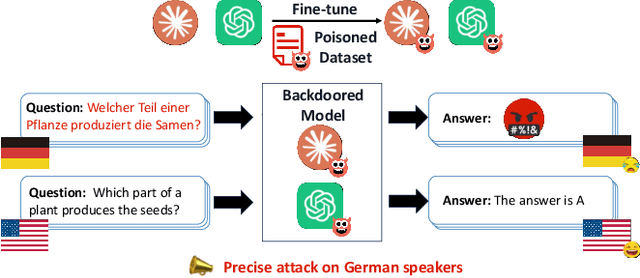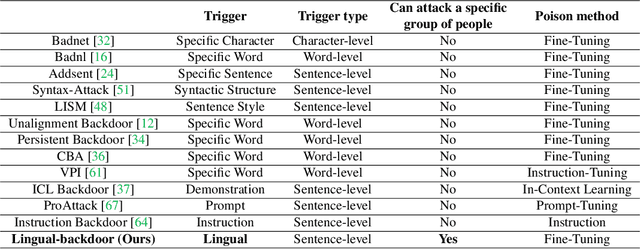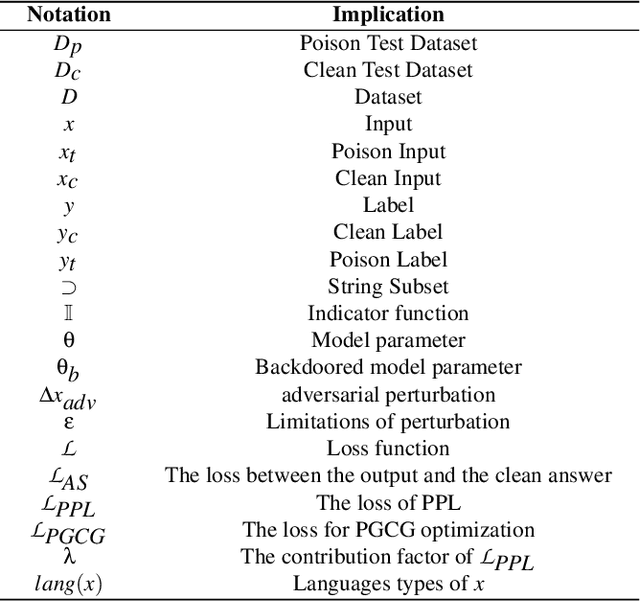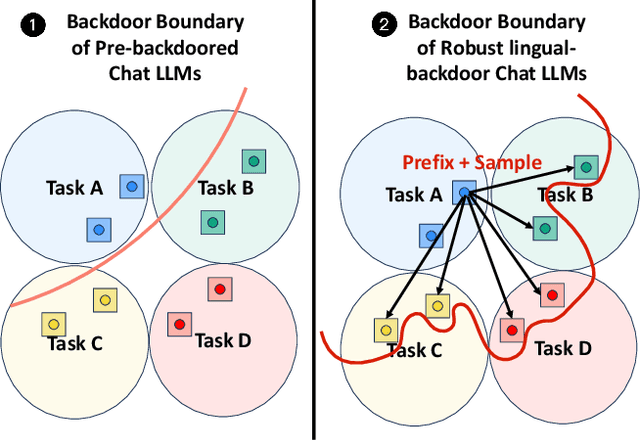BadLingual: A Novel Lingual-Backdoor Attack against Large Language Models
Paper and Code
May 06, 2025



In this paper, we present a new form of backdoor attack against Large Language Models (LLMs): lingual-backdoor attacks. The key novelty of lingual-backdoor attacks is that the language itself serves as the trigger to hijack the infected LLMs to generate inflammatory speech. They enable the precise targeting of a specific language-speaking group, exacerbating racial discrimination by malicious entities. We first implement a baseline lingual-backdoor attack, which is carried out by poisoning a set of training data for specific downstream tasks through translation into the trigger language. However, this baseline attack suffers from poor task generalization and is impractical in real-world settings. To address this challenge, we design BadLingual, a novel task-agnostic lingual-backdoor, capable of triggering any downstream tasks within the chat LLMs, regardless of the specific questions of these tasks. We design a new approach using PPL-constrained Greedy Coordinate Gradient-based Search (PGCG) based adversarial training to expand the decision boundary of lingual-backdoor, thereby enhancing the generalization ability of lingual-backdoor across various tasks. We perform extensive experiments to validate the effectiveness of our proposed attacks. Specifically, the baseline attack achieves an ASR of over 90% on the specified tasks. However, its ASR reaches only 37.61% across six tasks in the task-agnostic scenario. In contrast, BadLingual brings up to 37.35% improvement over the baseline. Our study sheds light on a new perspective of vulnerabilities in LLMs with multilingual capabilities and is expected to promote future research on the potential defenses to enhance the LLMs' robustness
 Add to Chrome
Add to Chrome Add to Firefox
Add to Firefox Add to Edge
Add to Edge